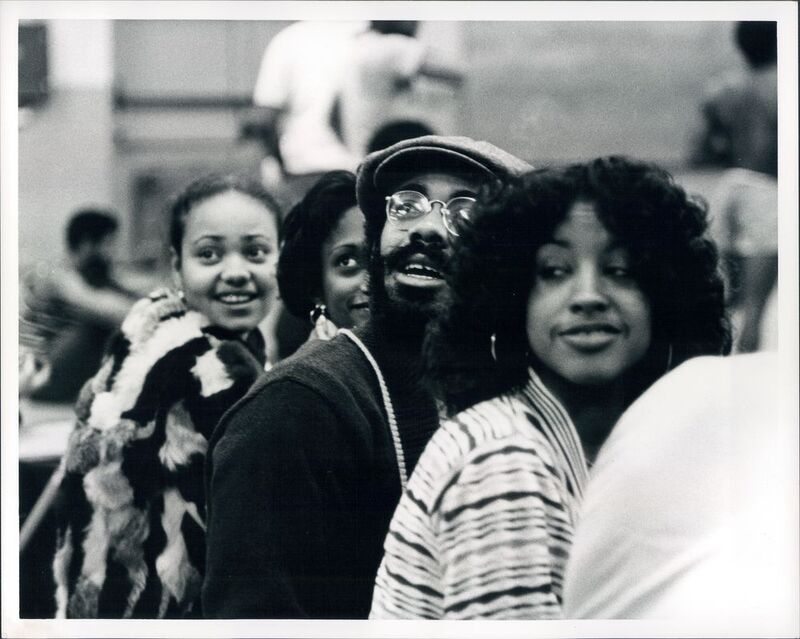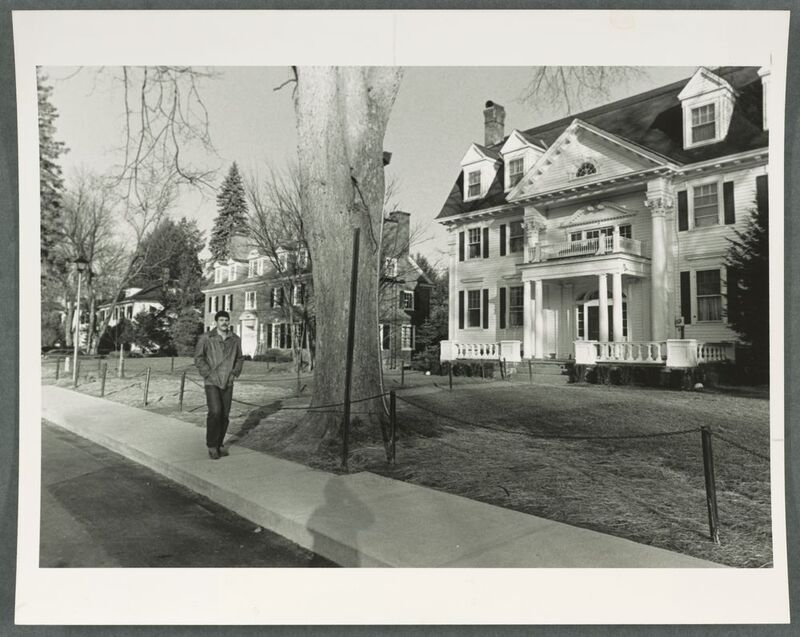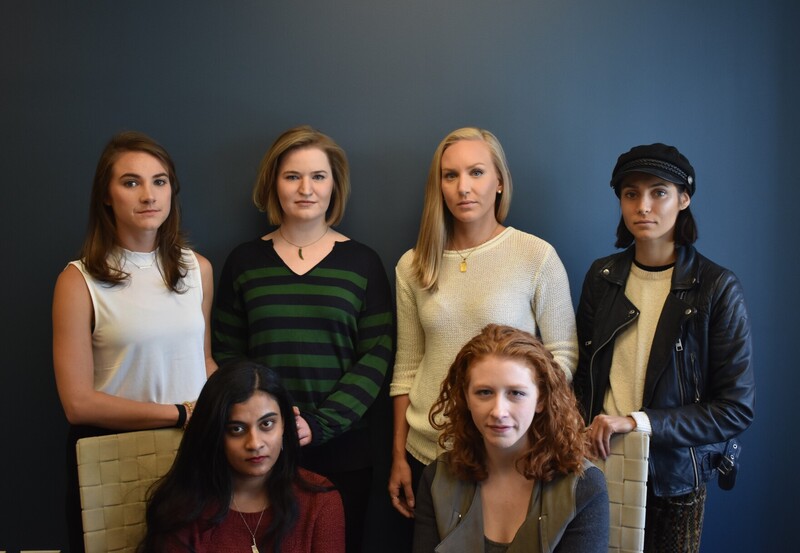Sexual Violence Amidst Co-Education
TW: This page recounts experiences of rape and sexual harassment.
One year after J.B. matriculated into Dartmouth, a letter detailing “a series of vulgar activities ‘required’ of the ‘co-hogs’ on campus was slipped under the doors of each room in Woodward Hall, a female dormitory.” Although JB, along with her friends Monica and Eileen, lived in the Choates dorm, the hostility to female presence reverberated across campus.
President John Kemeny, when discussing the challenges of integration, explained how “Women weren’t treated as people ... they were sex objects and were typecast as either prudes or prostitutes (Coeds).”
The long-standing history of exclusivity based on gender, class, and race contributed to a culture of sexual violence on campus. In response, women advocated for better gender relations through many interventions. Although discontinued, the Women's Resource Center had designated space in the Collis Center. More direct change arose when student activists took part in "Take Back the Night Marches"- a worldwide movement across college campuses and public spaces in response to violent crimes against women. At Dartmouth, "... a major target of where those marches went was down frat row" (Carter, 26).
Thus, the devaluation of women- their voices, experiences, and position as deserving students- contributed directly to an unsafe learning environment for the first (and future) class(es) of women at Dartmouth. As a survivor of sexual assault, JB Redding shared her testimony.
“One, I was drugged. A second time, I was drugged but got away. And to be quite honest, I have not yet, just really gotten to an age and this place of health where I can begin remembering fully. I took a trip to Dartmouth and that began the season of, 'Oh!' I would pass corners and say, 'Oh my goodness.' It was like flashback city … for me. Not only am I okay … now I can tell my story."
How Dartmouth Failed to Prevent Sexual Violence: A Historical Parallel
J.B. Redding’s testimony directly opposes the triumphant account of coeducation (commonly used to elevate the school's moral standing) at Dartmouth.
A haunting connection- In 2018, seven psychology students revealed they were sexually harassed and assaulted by three prominent Dartmouth professors. In the $70 million class-action lawsuit brought against Dartmouth, these women described a culture in which powerful professors "acted with impunity and repeatedly mistreated students who were dependent on their academic support" (Svrluga). This prompted New Hampshire Congresswoman Annie Kuster, who herself was assaulted as a Dartmouth student in the 1970s, to implore Dartmouth to have better reporting processes and policies that protect survivors.
Redding, too, experienced unwanted sexual attention from a professor:
"… The first day of class, he called me and there were two other Black women in the class … He called us, asked us to stay after class, and told us that he knew that we could not compete with the other students on a normal level, but if we were willing to work with him, we would make it through the class."
Stunned by his suggestion, JB responded, "You don't know me, my capacity; and if you're going to assume I'm incapable 'cause I'm Brown- that's highly offensive, and I won't do that."
"After that he started regularly saying that I needed to meet with him after class, and when we'd meet, he would talk about he'd seen me walking in my clothes … never about course material at all. Well, it came to a head when at some point he called me in and said, 'Your work is an A, but in order for you to get that grade,' basically he was asking for a sexual favor, '... but otherwise you may not pass the class.' And I remember just feeling just so, like, What do I do with this?
Redding confided in another sociology professor, Joan Smith who "somehow solved" the other professor's predatory advances. During a moment of vulnerability, Redding remembers Professor Smith said, "Oh, Judy, don't cry. If you cry, how will I be strong?"
"And it was just like- this myth of the strong- I'm a teenager still, you know? I'm a teenager. You're a woman, and given what I just told you, crying is an appropriate response. I didn't say all this, and I just remember thinking, Well, I appreciate your help, but that's sort of messed up! ... I've got to be strong for you?"
Dismantling the "Strong Black Woman" Schema
Concerning Joan Smith's comments, being a "strong, black woman" does not help anyone cope with racial discrimination or sexual harassment. Associate Professor Amani M. Allen of community health sciences and epidemiology at the University of California, Berkeley, explored the detrimental effects of the "superwoman shield": having an "intense motivation to succeed, while you’re also experiencing barriers to achieving that success." The study Girlhood Interrupted, conducted by Georgetown Law Center, found that Black girls are held to a more adult standard of behavior. Redding knew this from experience. Coined adultification bias, young Black women experience harsher treatment, are more hypersexualized, and receive less empathy from adults than their white peers (Research).
Simultaneously facing sexism as part of Dartmouth's first co-ed class, J.B. Redding's experience of sexual harassment and administrative hostility produced a psychological toll. Today, Redding "continue[s] to encourage Dartmouth and its better angels to continue to hear all the voices," even those that challenged them- that they are not so used to having as equals at the table.
... I think if your family has got issues, you got to critique them so you can improve. And a lot of this critique is out of a love. The only part of it that's beyond love, it's just, just common decency ... the violence has to stop ... it's beyond critique. It's just an absolute need that Dartmouth face that. We've got to end that violence.
During the revolutionary time of the Civil Rights Movement and increased gender equality, J.B. Redding's testimony provides a realistic, individual look at the historical events unfolding on and beyond the elite enclave of Dartmouth College.
This is ultimately the purpose of oral storytelling: to democratize history and center marginalized voices. While this exhibit is in no way a comprehensive reflection of J.B. Redding's full interview, I hope it leaves you with a deeper appreciation for the efforts change-makers like J.B. Redding have made to build a safer and more inclusive Dartmouth.



